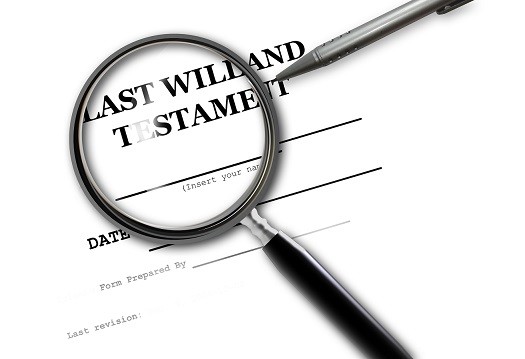“5 Divorce Questions: Interview of Lawyer Donna Neff by Russell Alexander“
March 29, 2013
Link to interview: Interview of Donna Neff
Link to Russell Alexander, Collaborative Family Law Lawyer: www.russellalexander.com
March 29, 2013
Link to interview: Interview of Donna Neff
Link to Russell Alexander, Collaborative Family Law Lawyer: www.russellalexander.com

Jack came into my Ottawa office last week to talk about his Will. He seemed upset. He was particularly concerned about leaving a gift to his grandson, Billy, who had a disability. He and Billy had always had a very special relationship and he wanted to be sure Billy would benefit from his estate.
Another family member had told Jack that once Billy turned 18, due to his disability he would likely start receiving ODSP. If he received an inheritance, Billy might lose his ODSP.
“What is ODSP?” Jack asked me, “Can Billy really lose his disability income if I leave him money?”
Publication: Parent-Child Guide Book, Lanark, Leeds and Grenville
Volume 14 Number 3 Spring 2013
Publication: CBA Practice Website
March 2013
Donna Neff is mentioned in this article about going paperless.
Link to CBA National site: CBA National Magazine online

Jim, not his real name, came to see me at my Ottawa office last week. His brother had suffered a heart attack the day before and would not be able to take care of his financial affairs…

Bill (not his real name) came into our Ottawa office to meet with me. His father had died a couple of years ago.  Bill needed a copy of his father’s Will because a long-lost cousin had died just before his dad. Bill’s dad had been left an inheritance from his cousin’s estate which was just now being distributed.
Bill needed a copy of his father’s Will because a long-lost cousin had died just before his dad. Bill’s dad had been left an inheritance from his cousin’s estate which was just now being distributed.
Bill thought he had a copy of his dad’s will but couldn’t find it anywhere. He needed to know how to find a Will.

As I sit down to write this blog, excitement is building across the city as our Ottawa Senators’ hockey season has finally begun. After long negotiations, the players and owners ultimately agreed and signed an agreement. At the same time, our teachers and the Ontario government are trying to reach an agreement which both sides can live with. In all facets of our lives, there are times when it is necessary to simply hash out the details, whether over an existing dispute or to prevent future disputes, and come to an agreement which meets the needs of all parties involved. The same is true with estate planning.
 A married couple, Bob and Sue (not their real names) recently met with me to ask how they could ensure that neither would change their wills without first consulting the other.
A married couple, Bob and Sue (not their real names) recently met with me to ask how they could ensure that neither would change their wills without first consulting the other.

My first day in the office of 2013, I met with Susan (not her real name) to discuss her estate planning. Our meeting went very well — she had come fully prepared, had a clear idea of her estate planning goals, and had many thoughtful questions. When we were scheduling her next appointment with me to discuss and sign her Wills and Powers of Attorney, she was literally beaming and looking quite pleased with herself.

The other day I met with Jane (not her real name) at my office in Ottawa. She wanted to talk about acting under a Power of Attorney for her aging mother. Recently, her mom had forgotten to pay a bill and missed an appointment … very unusual for her mom who had always been super organized. Jane is anxious and wonders if it may be time to start helping her mom manage her affairs and, if it is, how to go about taking over.

As I mentioned in my last blog, if you have noticed some signs that Mom might need help with her affairs, your first step is to determine whether she has signed Powers of Attorney documents.
A signed Power of Attorney (POA) can give another person (attorney) authority to make decisions and take care of things for the person who signed (grantor) the POA. Everyone over the age of 18 should have both a POA for property or financial matters and another for personal care.